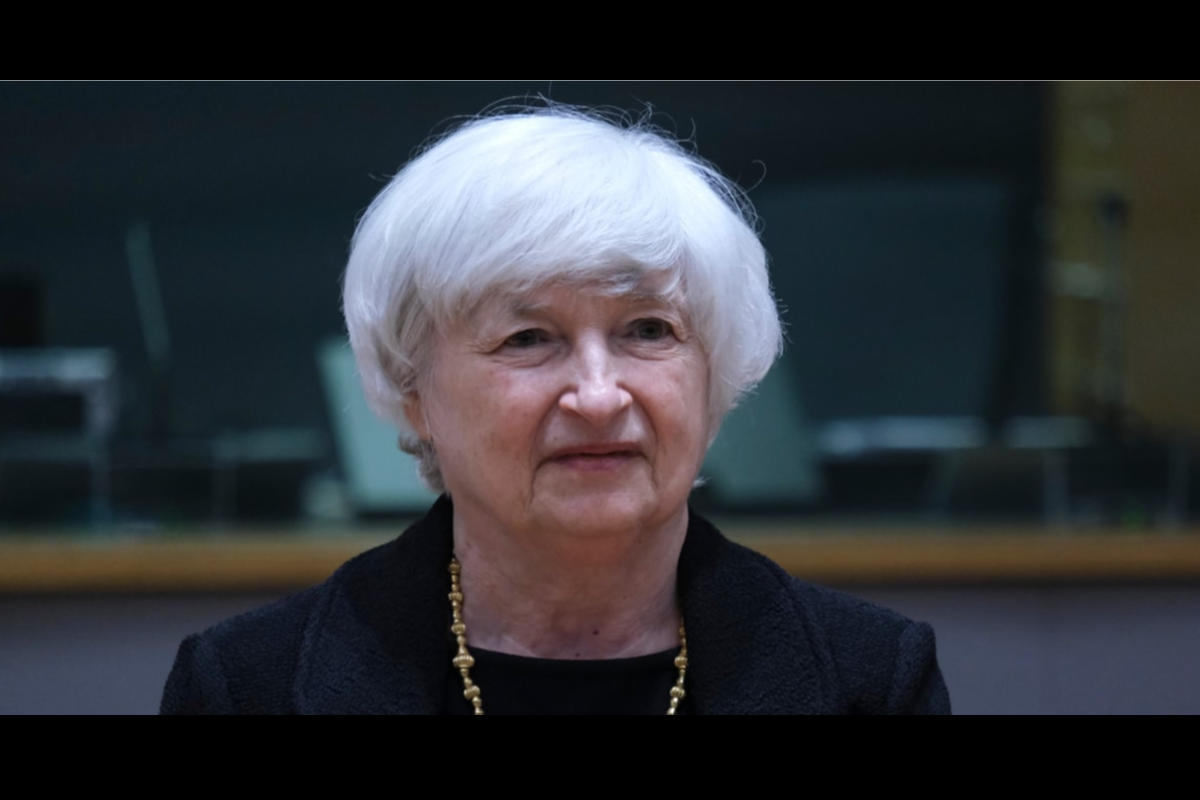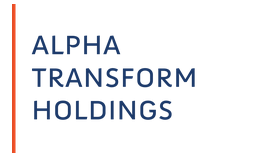Blockchain
INTERPOL WORLD 2019 – Exclusive Interview with the organizer, Anita Hazenberg – Director of Innovation Centre Directorate at Interpol Global

We had to pleasure to catch up with Anita HAZENBERG, the Director of the Innovation Centre Directorate at INTERPOL Global Complex for Innovation, organizer of INTERPOL WORLD 2019.
PICANTE: What determined you to organize Interpol World?
A.H.: Coinciding with the opening of the INTERPOL Global Complex for Innovation in Singapore, the first edition of INTERPOL World took place in 2015. Two years later, the second edition was held in 2017 just right after I arrived from the Netherlands Police to become the new director of INTERPOL’s Innovation Centre. I was asked to organize the next edition of INTERPOL World for 2019 and I have a strong desire for it to be a forum where we can together develop INTERPOL’s global innovation agenda through the activities we organize. The focus of the Innovation Centre is very much on providing innovation capabilities for INTERPOL’s 194 member countries, and we find it very important that all together, with all participants, we set that agenda, and that we have a clear understanding of what is needed. Many people think innovation is only about new emerging technologies. However, it also means being able to react here and now. If something happens, you can trust and rely on law enforcement that they are there to solve the problems. It’s about changing culture and procedures, it demands a total change of mindset.
PICANTE: Why Singapore?
A.H.: Apart from the support and foresight of the Singapore Government which offered us a fantastic location to build our INTERPOL Global Complex for Innovation here in the Lion City back when the INTERPOL President hailed from this great city, Singapore is a country with a strong focus on innovation and law enforcement. It’s only apt to also have the new Innovation Centre and INTERPOL World 2019 in Singapore.
PICANTE: What should the attendees expect from the Interpol World conference?
A.H.: Inspiration and awareness are vital components of INTERPOL World 2019. In the previous editions, exhibitions were a bubble that mirrored the developments in the business world. This year, we want to add another bubble into the constellation, and that is the bubble of working together and finding solutions to contemporary problems. This is why we have different sets of activities including motivational keynotes, plenary sessions, 32 co-creation labs, and working groups. In the co-creation labs, a law enforcement representative presents a contemporary problem and experts from the business and academic worlds respond. At the same time, we have also organized meetings of four INTERPOL law enforcement working groups to continue their discussions and collaboration: the Chief Innovation Officers Expert Group, Darknet and Cryptocurrencies Working Group, Drone Expert Group, and INTERPOL-UNICRI Working Group on Artificial Intelligence for Law Enforcement. In addition, the Chief Information Officers of INTERPOL will gather together during the event. Imagine, these five groups already constitute about 250 law enforcement senior officials and experts, add to these the participants and visitors for the exhibitions and co-creation labs, and you have an event of magnitude.
PICANTE: Who are the “top-selection” speakers of the conference? What’s their add-value to the tech world?
A.H.: All of our speakers for INTERPOL World 2019 are top-notch. However, I want to highlight a topic that should play a significant role in all discussions during INTERPOL World, that of ethics, privacy and human rights. The motivational speaker for the second day of the programme, Dr. Ayesha Khanna, will discuss ethics and privacy issues, as their relationship with law enforcement still faces questions and gaps that need to be answered. For example, do police still have the trust of our population and communities? As machines and algorithms get more and more sophisticated in their abilities to interpret and process information, people raise more questions on how police deal with their data. Thus, there is a challenge for law enforcement to be transparent. This is an overarching theme that will be emphasized during INTERPOL World.
PICANTE: What changes do you see as being short-term possible to implement in the cyber-security world after the conference?
A.H.: First of all, I hope it’s not only the cybersecurity world because I think innovation is much broader. Apart from cybersecurity, we will also talk about disruptors; ethics, privacy and trust within our communities; drones; identification technologies; smart systems; what would 5G mean to law enforcement; augmented reality; and a myriad of other topics pertinent to policing and law enforcement. The coexistence of the motivational keynotes, co-creation labs and working groups at INTERPOL World makes it a comprehensive conference for collaborating on solutions that hopefully could be effectively implemented in the near future.
About INTERPOL World 2019
INTERPOL World 2019 will take place between 2-4 July at the Sands Expo and Convention Centre.
INTERPOL World is a global co-creation opportunity which engages the public and private sectors in dialogue, and fosters collaboration to counter future security and policing challenges. INTERPOL World comprises of three interlinked activities: a series of niche and targeted platforms for knowledge exchange culminating in strategic co-creation labs to discuss the challenges and solutions for combating the crimes of the future; an exhibition that serves as a business and networking event for manufacturers, distributors, and Research and Development organizations to offer innovative products and cutting-edge technologies to public and private entities involved in law enforcement, security and likeminded industries. INTERPOL World will also host a series of INTERPOL working groups (by invitation only) focusing on innovation, artificial intelligence, drones and darknet cryptocurrencies.
Police, public, security professionals and commercial buyers from around the world will convene in Singapore to forge mutually beneficial alliances leading to faster, more accurate responses to global security and public safety threats.
Register to attend INTERPOL World 2019 here: www.interpol-world.com
About Anita Hazenberg
Ms Anita Hazenberg assumed her current duties as the first Director of the Innovation Centre Directorate, INTERPOL Global Complex for Innovation in Singapore on 1 July 2017. In the increasingly complex policing operating environment characterized by rapid technological breakthroughs, the Innovation Centre was set up to engage global law enforcement in strategic futures planning and to co-create solutions to emerging law enforcement challenges.
In the past 36 years of her career in the Netherlands Police, Ms Hazenberg was involved in various operational duties across the Netherlands specializing in ‘Violence against Women and Children’ and ‘International Police Cooperation’. She progressed into the international foray to take up several trailblazing roles, including as the Director of the European Network of Policewomen (ENP); the first Programme Director ‘Police and Human Rights’ for the Council of Europe (France); the founder and first Director of the School for Police Leadership; the first Coordinator for International Strategic Alliances and Deployment of the Staff of the Dutch National Police Commissioner; and as the initiator and Conference Director of the global annual law enforcement think-tank consisting of top-level executives – ‘Pearls in Policing.’ Ms Hazenberg holds two Masters, one in Public Administration and one in Change Management.
In the current digital age where technology has led to the fast convergence of the physical, digital and biological worlds, Ms Hazenberg believes that global law enforcement must better anticipate future challenges, and formulate innovative, efficient and resource-efficient solutions in response to criminals constantly looking to exploit vulnerabilities. The writings are already on the wall, and the global policing community must be ready to tackle the inevitable challenges that lay in the horizon.
Blockchain
Alpha Transform Holdings Releases March Report on ASC AI Index
Blockchain
Elizabeth Warren Urges Treasury Secretary Yellen to Implement Strong AML/CFT Measures for Stablecoins

In a recent communication directed to Treasury Secretary Janet Yellen, US Senator Elizabeth Warren has strongly advocated for the incorporation of robust Anti-Money Laundering and Combating the Financing of Terrorism (AML/CFT) measures specifically tailored for stablecoins. Senator Warren’s correspondence underscores the critical importance of adopting the full array of AML tools outlined by the Treasury Department in a prior November 2023 communication to Congress.
Senator Warren has underscored the burgeoning threat posed by cryptocurrencies, particularly stablecoins, to national security. She has specifically drawn attention to instances where entities like Iran and Hamas have turned to cryptocurrencies as a means to raise funds and support terrorist activities. To effectively address this evolving threat landscape, Senator Warren asserts that any forthcoming crypto legislation must encompass comprehensive AML/CFT authorities as requested by the Treasury Department.
Moreover, Senator Warren has made reference to the testimony provided by Deputy Secretary Adewale O. ‘Wally’ Adeyemo before the Senate Committee on Banking, Housing, and Urban Affairs. In this testimony, Adeyemo emphasized the critical need for additional AML authorities to combat the growing menace posed by cryptocurrencies. Senator Warren has pointed out that the exclusion of crucial actors within the digital asset ecosystem, such as miners and validators, from AML/CFT requirements could potentially enable nefarious actors to exploit the increased crypto trading facilitated by stablecoin legislation.
Senator Warren’s steadfast stance on the regulation and oversight of cryptocurrencies is aligned with her prior efforts aimed at curbing illicit activities and safeguarding consumers, the financial system, and national security interests. She has persistently advocated for the closure of loopholes in AML regulations that allow sanctioned entities like Iran to derive revenue through crypto transactions. Furthermore, Senator Warren has consistently voiced concerns regarding the exploitation of cryptocurrencies in terrorist financing schemes and has called for the implementation of stronger regulatory frameworks to protect both consumers and national security interests within the realm of stablecoin-related legislation.
Source: blockchain.news
The post Elizabeth Warren Urges Treasury Secretary Yellen to Implement Strong AML/CFT Measures for Stablecoins appeared first on HIPTHER Alerts.
Blockchain
Binance Launches Megadrop: A Token Launch Platform with Airdrops and Web3 Quests

Binance has rolled out Binance Megadrop, a novel token launch platform that blends airdrops with Web3 quests. This platform enables users to engage in BNB Locked Products subscriptions and complete tasks within their Web3 Wallet to earn early rewards from chosen Web3 projects, even before their tokens hit the Binance Exchange.
The inaugural project featured on Binance Megadrop is BounceBit (BB), a BTC restaking chain. Here are the token specifics for BounceBit: Max Token Supply: 2,100,000,000 BB, Megadrop Token Rewards: 168,000,000 BB (8% of max token supply), Initial Circulating Supply: 409,500,000 BB (19.5% of max token supply).
To kickstart their journey with Binance Megadrop, users must log into their Binance account and ensure they possess an active Binance Web3 Wallet. From there, they can subscribe to BNB Locked Products and/or fulfill Web3 Quests to accumulate scores. These scores dictate the rewards received through the Megadrop program.
The scoring mechanism for Megadrop relies on the Locked BNB Score, determined by the quantity of BNB subscribed and the subscription period’s duration. Users also earn a Web3 Quest Bonus and a Web3 Quest Multiplier upon completion of designated Web3 Quests. The total score is computed by applying the Web3 Quest Multiplier to the Locked BNB Score and adding the Web3 Quest Bonus.
Importantly, only wallets created within the Binance Web3 Wallet and not external wallets will count towards Megadrop participation. Megadrop rewards will be airdropped to users’ Binance Spot Wallets.
Users must undergo identity verification and maintain at least one active Binance Web3 Wallet to qualify for Megadrop rewards. Additionally, certain jurisdiction-based eligibility criteria apply. Users from Australia, Canada, Cuba, Crimea Region, Hong Kong, Iran, Japan, New Zealand, Netherlands, North Korea, Russia, Singapore, Syria, United Kingdom, United States of America, and its territories are presently ineligible to participate in BB Megadrop.
Binance Megadrop is aimed at offering users an interactive and rewarding experience within the crypto realm. Further details regarding the Megadrop amount, Web3 Quests, and the comprehensive listing plan will be disclosed separately.
Source: blockchain.news
The post Binance Launches Megadrop: A Token Launch Platform with Airdrops and Web3 Quests appeared first on HIPTHER Alerts.
-
Blockchain7 days ago
THXLAB and IZUTSUYA Announce Strategic Partnership
-
Blockchain3 days ago
Open-Source Intelligence (OSINT) Market is expected to reach a revenue of USD 64.9 Bn by 2033, at 25.6% CAGR: Dimension Market Research
-

 Blockchain Press Releases6 days ago
Blockchain Press Releases6 days agoBitget to Take Center Stage at Blockchain Life and Token2049 Dubai
-

 Blockchain Press Releases2 days ago
Blockchain Press Releases2 days agoBybit and Franck Muller Partner with Sidus Heroes to Launch Cosmic Gears: A Pioneering Web3 Game with a $250,000 Prize Pool and Exclusive Watch Collection
-

 Blockchain Press Releases7 days ago
Blockchain Press Releases7 days agoBitrue Gears Up for 2024 Bitcoin Halving with Trading Competition
-

 Blockchain2 days ago
Blockchain2 days agoBlockchain Transforming Travel: Quantum Temple’s Innovative Venture
-

 Blockchain Press Releases7 days ago
Blockchain Press Releases7 days agoaelf Leads the Fusion of AI and Blockchain to Shape the Future of Technology
-

 Blockchain2 days ago
Blockchain2 days agoEvolution of the Blockchain World: Doric Blockchain Drives Education and Adoption of Blockchain Technology and Tokenization in Latin America





































